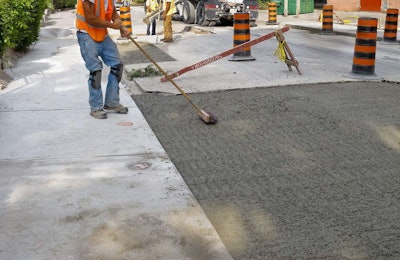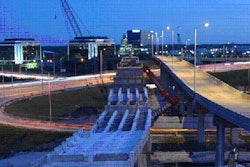
Graphene is made up of a single layer of carbon atoms in a hexagonal lattice, which gives it important physical qualities, including efficient conductance of heat and electricity and unusual strength.
The new technique allows a layer of graphene to be suspended in water, which researchers say produces a high yield of concrete without defects, which can be used in combination with modern manufacturing techniques at a relatively low cost. Using graphene allowed the researchers to roughly cut in half the amount of materials used to make concrete. The technique could also be copied for incorporating other nanomaterials into concrete construction in the future, which could pave the way to more innovations in the industry.
“Our cities face a growing pressure from global challenges on pollution, sustainable urbanisation, and resilience to catastrophic natural events,” said Monica Craciun, professor of nanoscience at the University of Exeter’s engineering department, according to the news agency. “This new composite material is an absolute game-changer in terms of reinforcing traditional concrete to meet these needs.”
Using graphene helps reduce greenhouse gas emissions produced in concrete and cement-making, which account for 6 percent of global carbon emissions. Composite samples tested have all come up to British and European standards.
“Finding greener ways to build is a crucial step forward in reducing carbon emissions around the world. This is a crucial step in the right direction to make a more sustainable construction industry,” said Dimitar Dimov, lead author of the study, according to the news agency.
The University of Exeter research is available in a paper, Ultrahigh Performance Nanoengineered Graphene-Concrete Composites for Multifunctional Applications, which is published in the journal Advanced Functional Materials, and was funded by the UK’s Engineering and Physical Sciences Research Council.









